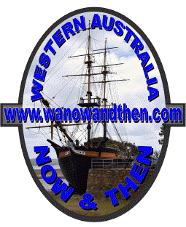|
|
|||
|
|
|
|
|
|
|
|||

|
|
|
|
|
Travel Advice for Overseas Visitors to Western Australia |
|
|
Seasoned travellers are usually well aware of what to look for and what to do when visiting overseas countries but what about first time travellers?
Your overseas holiday is meant to be stress free and enjoyable but what do you do if something goes wrong?
We will attempt to give you some advice on this page about the things you should think about and information on where to get help if something should go wrong when you are in Western Australia. On the right hand side of the screen you will find all sorts of links to other websites that will provide specific information for your visit.
Before you get here
Most visitors coming to Australia will need a visitor's visa. These are usually organised by your travel agent. Typically a visitor's visa will be valid for 3 months.
Australia has very strong quarantine laws that are meant to protect local produce from diseases that are not present in Australia. When entering Australia you will be asked to fill in a form declaring whether you are carrying any plant or animal material. Many people seem to be confused about this and many get fined for incorrectly filing in the form.
Put simply, if you are bringing in ANYTHING that is or was once alive, anything that you can eat, including medicines and seeds, and plant or animal matter then you MUST declare it to customs as you enter the country. Declaring the items does not necessarily mean that they will be confiscated, in fact most goods that are declared are not prohibited and are allowed through.
If you are in doubt about anything you are carrying then DECLARE IT, you will not get into trouble for declaring something that does not need declaring but you might get into trouble for not declaring something that does.
There are other items that you will need to declare including firearms, ammunition, large sums of cash etc. To find out all the details visit the quarantine link in the right hand column.
DO NOT attempt to bring in illicit drugs. There are big penalties for the importation of prohibited drugs and gaol sentences are severe. Make sure your bags and cases are securely locked and if anything has been tampered with report it to the customs officers on arrival. If you take prescribed medications then it is a good idea to get a letter from your doctor detailing what you need to have with you.
Transit Flights
If your flight is not direct to Australia and you have to change planes DO NOT under any circumstances buy duty free liquids at your first point of embarkation. All duty free fluids you attempt to take onto the second flight WILL BE CONFISCATED!
The only places it is safe to buy duty free liquids (this includes alcohol and perfumes) is at your LAST point of embarkation before arriving in Australia or buy it in Australia when you arrive.
Example: If you buy duty free alcohol at Heathrow in London IT WILL BE CONFISCATED in Singapore before you board your flight to Australia. Also if your flight arrives in Perth and is transiting to Sydney then your duty free will be confiscated in Perth.
Local Time
Local time in Western Australia is GMT + 8. We are in the same time zone as Singapore and Malaysia. Other states in Australia operate in different time zones with some states using daylight saving time during the summer months.
Language
Australia is a predominantly English speaking country but if you are in the main population centres you are very likely to find a lot of people whose first language in not English. This can make finding directions and getting advice on the street a lot less intimidating for non-English speakers.
Most of the signage you will find will be in English and even tourist information booklets are also usually in English.
The further you get from major towns and cities the fewer foreign language speakers you are likely to meet. If you need help with translation then call 131 450 or visit the translation service link in the right hand column. Be aware that fees may be payable for some translation services.
In general Australians are friendly and helpful people. They will rarely hesitate to help someone in distress and are often willing to go out of their way to help overseas visitors.
Currency
Australia uses decimal currency with the units being dollars and cents. 100 cents = 1 dollar.
Notes are made up of $5, $10, $20, $50 and $100. Coins consist of 5c, 10c, 20c, 50c, $1 and $2. 1c and 2c coins were phased out and are no longer used. Where payment is not exactly to the nearest 5c it will be either rounded up or down.
Banks are open from 9.30am - 4.00pm from Monday to Thursday, and 9.30am to 5.00pm on Fridays.
ATM machines are common and usually open 24 hours a day.
Shopping, School and Public Holidays
How much local holidays will effect your stay in Australia will largely depend on where you are staying. Major cities are now 'open' 7 days a week. Once you get further out into country towns opening times of shops will vary greatly. Many still only open for half a day on Saturday and are closed on Sunday. See our shops and Op Shops pages for more information.
Government departments are usually only open from Monday to Friday and not at all on public holidays but again this depends on what services you are looking to access.
School holidays have a great effect on available accommodation and if you are staying here during school holidays you should ensure that any accommodation has been pre-booked.
Alcohol
It is illegal to supply alcohol to anyone under the age of 18 years in Australia. It is also illegal to drive a vehicle of any kind with a blood alcohol reading of 0.05 or above. In effect this means if you drink alcohol then don't operate a vehicle for at least 7 hours.
If you look younger than 18 then you may be asked to provide proof of age before you are served with any alcohol.
Drink in moderation and avoid anyone who is obviously drunk.
Personal Health and Safety
There was a time when Australians could leave the house unlocked, hop into their car, drive down to the local shop, leave the car window down with the keys in the ignition and come back to find everything was still in place. That time has now passed and Australia has 'come of age' and is subject to many of the problems of crime and anti-social behaviour that have beset America and Europe.
Always ensure your personal belongings are protected while you are on holiday. Computers, phones, cameras and tablets are a favourite target of thieves as are things like credit cards and cash.
Australia is still a very safe place in general but the larger the population centre, the more undesirable elements will be present.
Do not walk alone at night, avoid dark lonely areas and where possible only withdraw money from ATMs during daylight hours when there are plenty of people about.
Be aware of the extremes of climate that exists here. During winter southern areas can be subject to storms, cold snaps and even snow in some extreme cases. During summer the temperature regularly goes over 35C and you need to keep yourself protected from the effects of heat and sunlight.
Stay on marked tracks and in the warm months never walk where you cannot clearly see the ground. We have more than our fair share of dangerous snakes in Australia and children are always told not to walk in the long grass for very good reason.
If you are going for a walk in the bush then make sure someone knows where you are going and when you are expected back. Carry enough water, wear a hat and loose clothing. Use sunscreen to protect from sunburn and always stick to walking trails. If you get into trouble then STAY PUT unless you are 100% sure you can walk out. If you are in the bush in a broken down vehicle then STAY PUT anyway. A vehicle offers shade and security and is much easier for rescuers to find. See our Survival Guide and First aid page for more information.
If you are going for a swim in the ocean then swim where there are other people. On patrolled beaches swim between the safety flags. Do not swim at dawn or dusk in the ocean or rivers. Remember in the north there are hazards like crocodiles and stinger jelly fish. Sharks inhabit all coastal waters and many rivers. Australia has more than its fair share of dangerous creatures so it is best to stay alert.
If you have an accident or get sick and require medical assistance you need to know that health care costs for overseas travellers can be very high. A single night in hospital can cost you upward of $1500 AU. It is highly recommended that you take out comprehensive travel insurance when you book your tickets to come here.
Aborigines and Aboriginal Land
The Aborigines of Australia have a culture stretching back at least 40,000 years. Although many now live in cities and large towns there are still large areas of Australia that are Aboriginal land. Entry to Aboriginal land is restricted and permits are usually required before you can enter. You can obtain a permit by making an application at the Dept. of Aboriginal Affairs. Follow the Aboriginal Land link in the right hand column.
Many Aboriginal communities prohibit the consumption of alcohol on their land. It is an offence merely to take alcohol onto their lands.
Some Aboriginal people are sensitive about having their photographs taken. If you want to take a photo then it is polite to ask permission first. Some areas on Aboriginal land are sacred sites and in some cases photography of a site is not permitted. If in doubt ask first.
Internet Access
Australia sometimes lags a bit behind the rest of the world in some areas and the provision of wireless internet services has been one of these areas.
You will generally find good wireless access in the largest cities with free access provided at some fast food outlets and restaurants but once you are outside the main centres, access can be a bit of a problem. If you are travelling in outback areas you will usually find internet access at one of the many Community Resource centres.
Driving
In Australia we drive on the left hand side of the road. Distances between towns may be large and you need to take regular rest breaks. We have tips and information on the following pages :
RELATED PAGES
Roads |
Roadside Rest Areas |
Road Rules |
Road Safety |
Self-drive Tours
See our emergency phone numbers page for useful contact details
|
INFORMATION
|
|
Become a supporter of this website for just $5 a month
|



